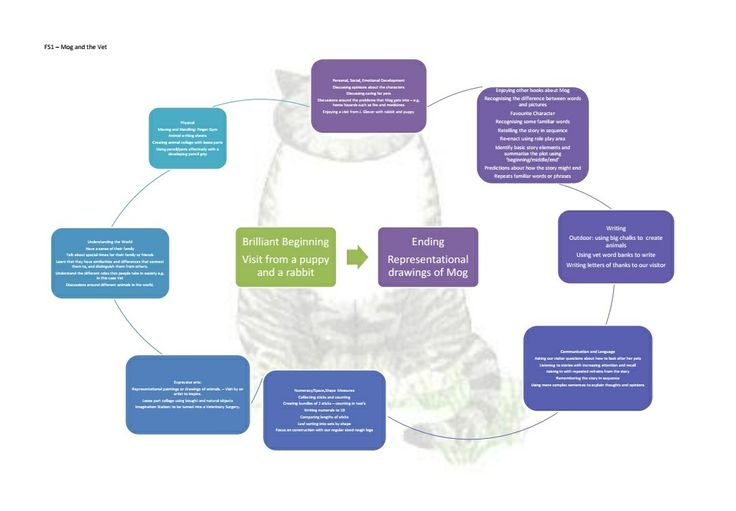North Korea's Infiltration Of US Remote Jobs: The Role Of American Complicity

Table of Contents
Methods of Infiltration: How North Korean Actors Exploit Remote Work
North Korean state-sponsored actors are sophisticated in their methods, leveraging the ease and anonymity afforded by remote work to infiltrate US companies. Their tactics combine technical expertise with shrewd social engineering, exploiting vulnerabilities in both systems and human behavior.
Exploiting Job Boards and Online Platforms
Job boards like LinkedIn, Indeed, and others are fertile hunting grounds for North Korean operatives. They create fake profiles, often using stolen identities and meticulously crafted resumes to blend in with legitimate applicants. The relatively lax verification processes on many platforms, coupled with the high volume of applications, make it easy for these actors to slip through the cracks.
- Targeted Job Types: IT roles (software developers, cybersecurity analysts), financial analysts, and positions with access to sensitive data are frequently targeted.
- Tools and Techniques: VPNs and anonymity tools mask their real IP addresses and locations, making it difficult to trace their activities. They often leverage compromised accounts and stolen credentials to further enhance their anonymity.
Utilizing Social Engineering and Deception
Social engineering remains a highly effective tactic. North Korean actors employ phishing scams, creating convincing emails and websites to trick unsuspecting employees into revealing sensitive information, including login credentials and financial details. They often create fake companies or projects, promising lucrative opportunities to lure potential victims.
- Successful Attacks: Many successful attacks hinge on human error – a simple click on a malicious link or the disclosure of a password can grant access to entire networks.
- Psychological Manipulation: These attacks often leverage psychological manipulation techniques, preying on people's trust and desire for professional advancement.
Leveraging Gaps in Security Protocols
Many companies employing remote workers have inadequate security protocols, creating further opportunities for exploitation. Weak passwords, lack of multi-factor authentication (MFA), and insufficient cybersecurity training all contribute to the problem.
- Exploited Vulnerabilities: Unsecured Wi-Fi networks, personal devices used for work, and outdated software are common vulnerabilities exploited by North Korean actors.
- Best Practices: Implementing strong passwords, enabling MFA, using company-provided devices, and regularly updating software are crucial steps to mitigate these risks.
The Consequences of North Korean Infiltration of Remote Jobs
The consequences of successful infiltration by North Korean operatives are far-reaching and severe, impacting businesses, the US economy, and national security.
Data Breaches and Intellectual Property Theft
Access to sensitive company data, including intellectual property (IP), customer information, and financial records, can cause devastating damage. The financial losses from data breaches can be enormous, while reputational damage can be long-lasting.
- High-Profile Breaches: Numerous high-profile data breaches have been attributed to state-sponsored actors, highlighting the significant threat posed by these attacks.
- National Security Implications: If sensitive government or military information is compromised, the consequences for national security can be catastrophic.
Sanctions Evasion and Funding of Illicit Activities
Infiltrating US companies allows North Korea to circumvent international sanctions. Stolen funds are used to finance their weapons programs, illicit activities, and overall regime operations.
- Sanctions Evasion Schemes: Remote work provides a layer of anonymity that facilitates these schemes, making it difficult to trace the flow of funds.
- Ethical Implications: Unwitting participation in sanctions evasion carries significant ethical and legal ramifications.
The Erosion of Trust and National Security
The successful infiltration of US companies erodes public trust in remote work and cybersecurity practices. The compromised data can expose national security vulnerabilities, potentially impacting international relations.
- Long-Term Consequences: The long-term consequences for US national security and international relations are significant and should not be underestimated.
- Need for Stronger Regulations: Stronger regulations and proactive measures are urgently needed to counter this growing threat.
The Role of American Complicity
While North Korean actors are the primary aggressors, American complicity, often unintentional, plays a significant role in facilitating these infiltrations.
Lax Security Practices and Lack of Awareness
Inadequate cybersecurity training and awareness among remote workers and companies create significant vulnerabilities. Insufficient verification processes for remote job applicants further exacerbate the problem.
- Recommendations: Increased investment in cybersecurity infrastructure and employee training, along with stricter verification procedures, are crucial steps.
Reliance on Cost-Cutting Measures
The pressure to reduce costs often leads to neglecting cybersecurity investments and employee training, creating opportunities for exploitation.
- Compromised Security: Cutting corners on security measures ultimately leads to higher long-term costs due to potential data breaches and reputational damage.
Unintentional Assistance to Sanctions Evasion
Unwitting participation in questionable financial transactions can inadvertently aid North Korea in circumventing sanctions.
- Enhanced Due Diligence: Companies need to perform enhanced due diligence and exercise greater vigilance in their remote work hiring practices.
Conclusion
North Korea's infiltration of US remote jobs presents a significant and evolving threat, fueled by unintentional American complicity through lax security practices, insufficient awareness, and cost-cutting measures. The consequences are far-reaching, impacting national security, corporate reputations, and the integrity of the global financial system. Addressing this requires a multi-pronged approach. Companies must invest in robust cybersecurity measures, improve employee training, and enhance due diligence processes in hiring remote workers. Individuals need to remain vigilant and adopt strong cybersecurity practices. Ignoring the problem of North Korea's infiltration of US remote jobs is not an option; proactive measures are crucial to safeguard our national security, protect our businesses, and maintain the integrity of our remote work landscape. Increased awareness and collaborative efforts are vital to mitigating the risks associated with North Korea's infiltration of US remote jobs and protecting against future attacks.

Featured Posts
-
 Joan Mirs Disappointment Analyzing His Best Moto Gp Result Since India 2023
May 29, 2025
Joan Mirs Disappointment Analyzing His Best Moto Gp Result Since India 2023
May 29, 2025 -
 Pokemon Tcg Pockets 6 Month Anniversary Special Missions And Rayquaza Ex Giveaway
May 29, 2025
Pokemon Tcg Pockets 6 Month Anniversary Special Missions And Rayquaza Ex Giveaway
May 29, 2025 -
 I Tzanin Piro Nea Eisaggeleas Stin Oyasingkton Diorismos Apo Ton Tramp
May 29, 2025
I Tzanin Piro Nea Eisaggeleas Stin Oyasingkton Diorismos Apo Ton Tramp
May 29, 2025 -
 New Horror Film Bring Her Back Image Hints At Disturbing Content
May 29, 2025
New Horror Film Bring Her Back Image Hints At Disturbing Content
May 29, 2025 -
 Flagowa Inwestycja Pcc Analiza Potencjalnych Opoznien I Zwiekszonych Kosztow
May 29, 2025
Flagowa Inwestycja Pcc Analiza Potencjalnych Opoznien I Zwiekszonych Kosztow
May 29, 2025
Latest Posts
-
 Planning Permission Granted Wherry Vets Bungay Expansion
May 31, 2025
Planning Permission Granted Wherry Vets Bungay Expansion
May 31, 2025 -
 Suffolks Wherry Vet Planning Bid Success In Bungay
May 31, 2025
Suffolks Wherry Vet Planning Bid Success In Bungay
May 31, 2025 -
 Bungays Wherry Vet Secures Planning Permission East Anglian Daily Times Report
May 31, 2025
Bungays Wherry Vet Secures Planning Permission East Anglian Daily Times Report
May 31, 2025 -
 Wherry Vet Planning Application Approved In Bungay Suffolk
May 31, 2025
Wherry Vet Planning Application Approved In Bungay Suffolk
May 31, 2025 -
 1968 And 2024 A Springtime Comparison And Summer Drought Outlook
May 31, 2025
1968 And 2024 A Springtime Comparison And Summer Drought Outlook
May 31, 2025
